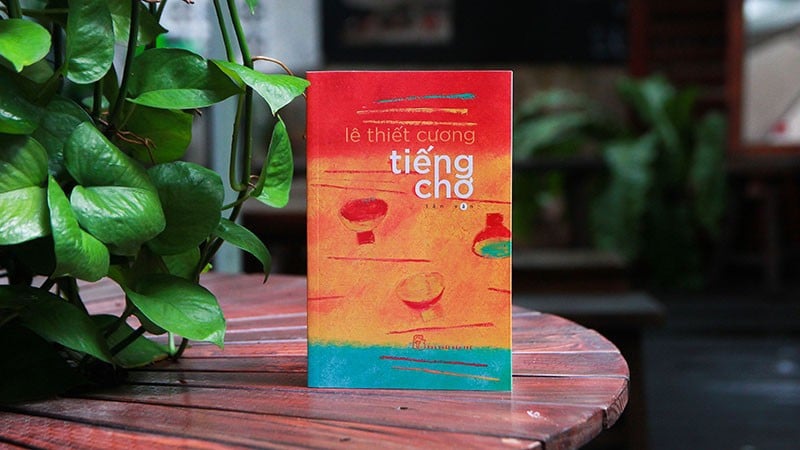
Le Thiet Cuong's first book published by Tre Publishing House was the criticism collection Seeing, with the same name as the column he wrote in Nhan Dan Newspaper every month, in which he commented on paintings and photos, but in reality he was using them to tell what he was seeing.
The essay book Market Voice was published a few days after his death, with a minimalist spirit, only 200 pages, divided into two parts: “The Smell of the Kitchen” and “The Street’s Sticky Rice”. The book is his way of telling how he feels about the small, gentle beauties hidden in the flow of time, from home to the street, from the past to the present.
He looks, smells, tastes, touches, listens, and then tells it through his writings. Reading The Voice of the Market must be done leisurely, otherwise it will be difficult for the reader to feel the slow, meticulous rhythm in it. The person who sees the beauty in the lotus powder, in the lotus smoke, the person who tastes each suitable spice of each dish, the person who describes the "smell of mother", the "scent of the kitchen", the "smell of Tet", the footsteps of the street vendor, the "sound of the market"... is certainly a person who lives slowly, in the sense of living deeply and carefully, as if cherishing and regretting all the beautiful things of this life.
Typically in the book Market Voice, readers see Le Thiet Cuong pay attention to how food and spices go together: “I don’t know what to say, I suspect that living simply makes life easier, but… shrimp paste eaten with sweet star fruit is hard to swallow. Not to mention that some families replace it with pineapple, which is beyond discussion… The spices of shrimp paste also include green banana, chopped onion, and julienned ginger.
Also ginger, but the dipping sauce for boiled snails or the vegetable soup with perch requires crushed ginger. Ground pepper is used for many dishes, but for the head sausage (stir-fried pork roll), it must be crushed pepper…. The only remaining beef noodle soup in the Old Quarter at Hang Muoi is hand-cut noodles, the noodles are delicious and beautiful because they are uneven, bigger than machine-cut noodles, so the two edges of the noodles curl up, looking pleasing to the eye.
It can be seen that Le Thiet Cuong, whether eating, dressing, taking photos, painting, inviting friends to a drink, etc., still pays attention to beauty. He believes: “Beauty is a human attribute. Of course, eating also needs to be learned. Learn to eat, learn to speak, learn to live beautifully.”
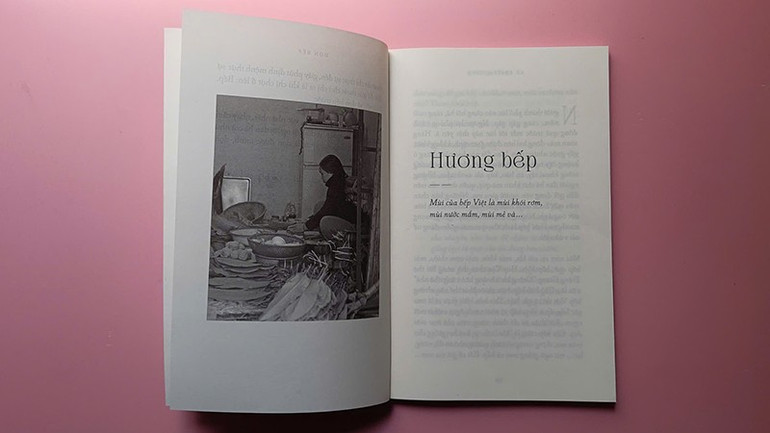
In the poem “Human manners”, he believes: “The thoroughness, thoroughness, orderliness, from the matter of pickles, the matter of pouring tea… that is orderliness, family manners, human manners”. In family matters, he pays the most attention to the kitchen, because: “Kitchen matters are also family matters, people matters, not just matters of eating and drinking. The living room and bedroom do not have a god, only the kitchen has a kitchen god”.
The Market Voice tells many stories about culinary cuisine, but more broadly, it depicts a Le Thiet Cuong who is willing to spend time and effort meticulously observing and contemplating something he considers beautiful, without worrying at all about whether it is “worth” spending time and effort according to the majority’s point of view. Even if that beauty is so hidden that it is hard for anyone to notice. Thanks to that, we get to enjoy very beautiful lines.
The sound of the market reveals Le Thiet Cuong's lifestyle, liking things that follow nature, follow what he is interested in, heavy on emotions, even if it is short-lived, it doesn't matter. He told the story of a friend who came back from abroad, he invited her to buy some green rice flakes from a street vendor, she found them delicious, a few days later asked her to buy some to give as a gift. He said lightly that it was not easy to buy, because of the deliciousness of green rice flakes, the beauty of Hanoi , because it has such street vendors, "there is no restaurant that specializes in selling green rice flakes. And when it comes to gifts, eating gifts means eating for fun, eating when you happen to see them, coincidentally is fun, eating gifts doesn't need to be on time, there is no meal".
According to Tre Publishing House, reading The Market Voice, people know that Le Thiet Cuong is modern. Modernity is not in the form of innovation, in the elaborate arrangement, but in the way he absorbs tradition - wrapping the quintessence in every daily contemporary operation. Therefore, the collection of essays about culture - cuisine - about "kitchen smell", "street manners" - of a region of Hanoi, seems to have gone beyond the specific geographical space and time, to touch the silent but enduring principles of conduct in the essence of Vietnamese culture. A modernity comes from tradition.
Source: https://nhandan.vn/ra-mat-tap-tan-van-tieng-cho-cua-co-hoa-si-le-thiet-cuong-post897638.html



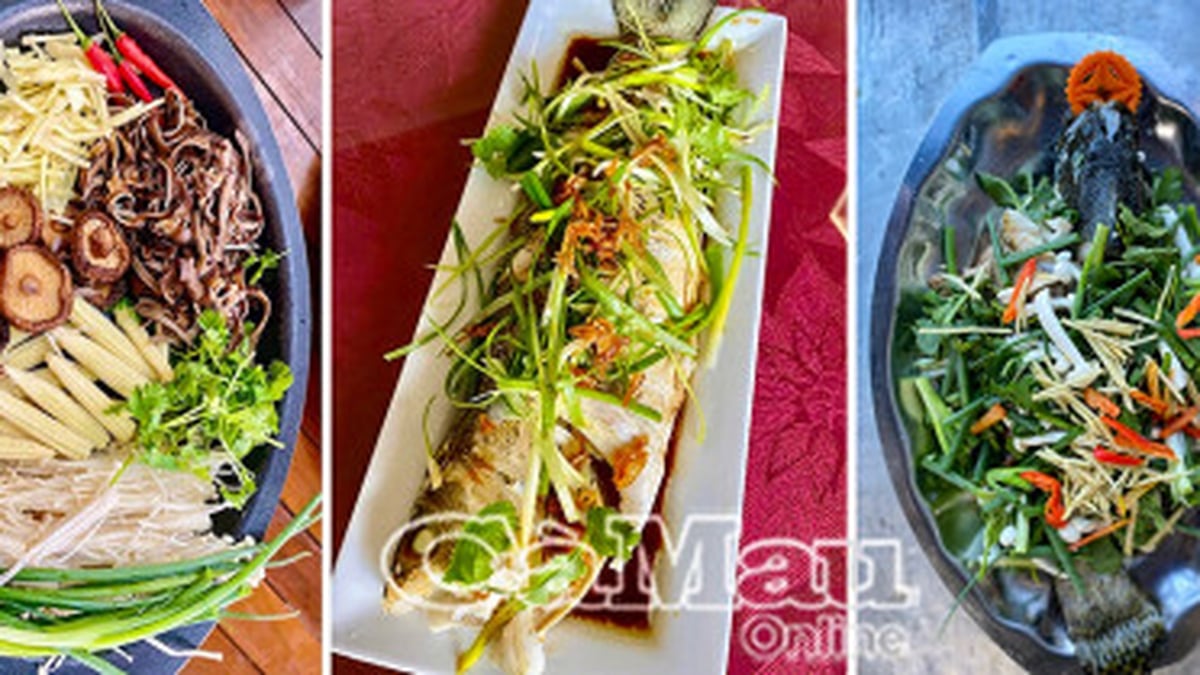


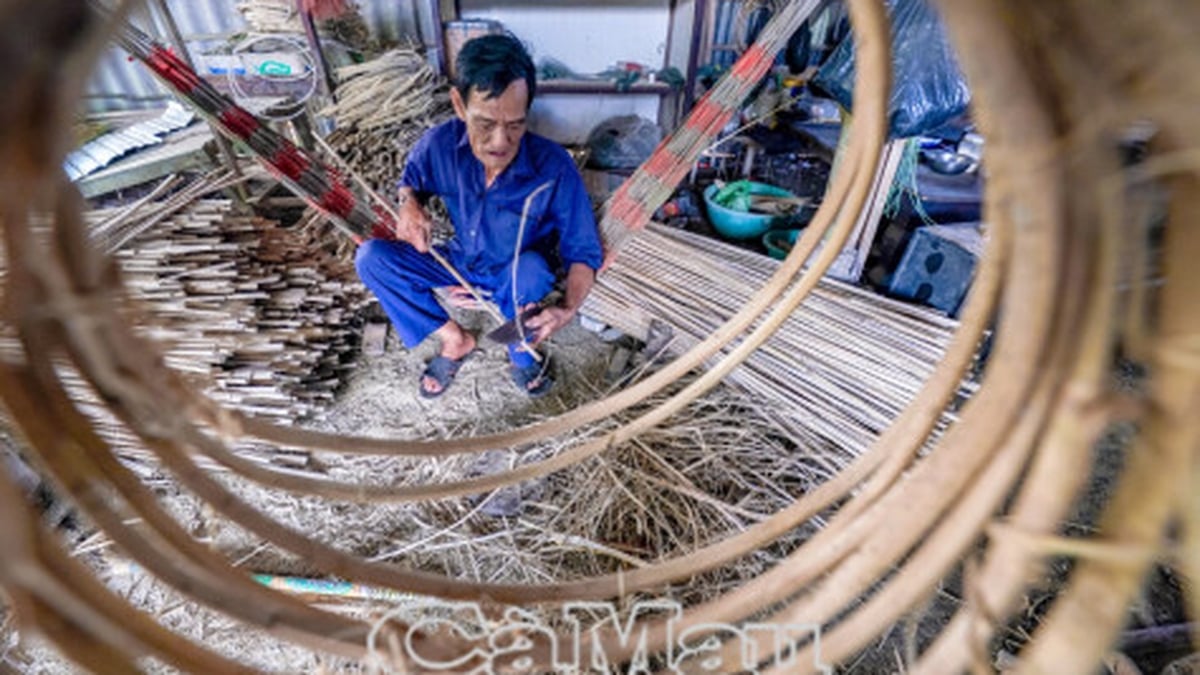

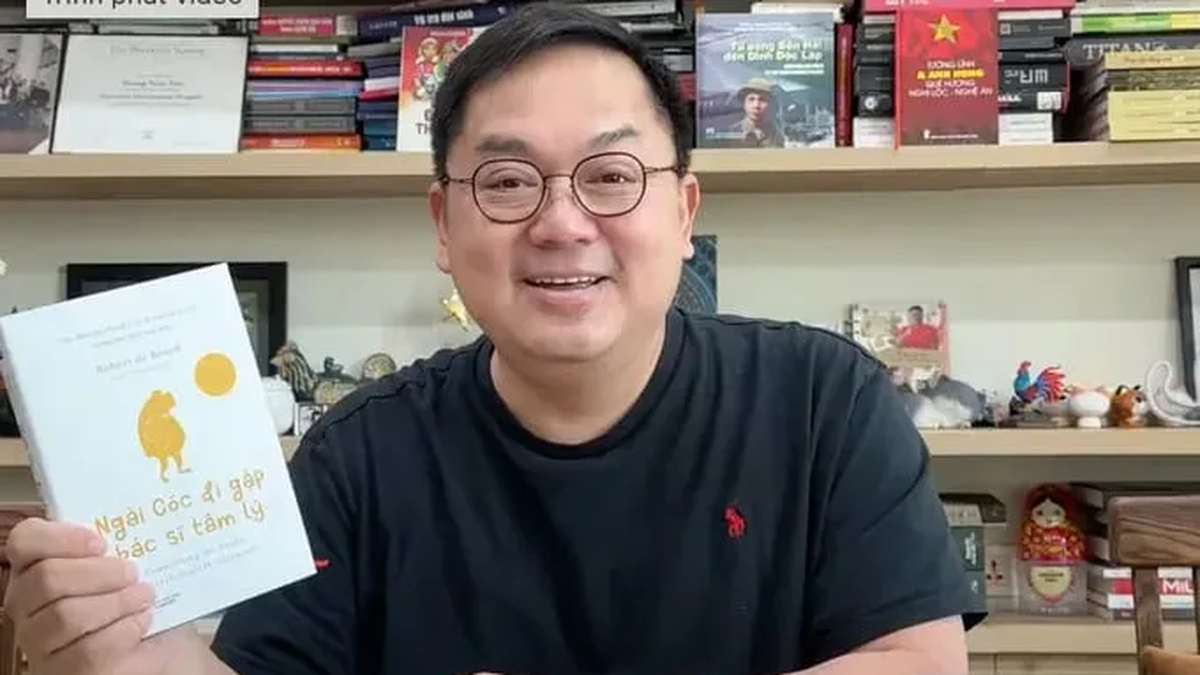























































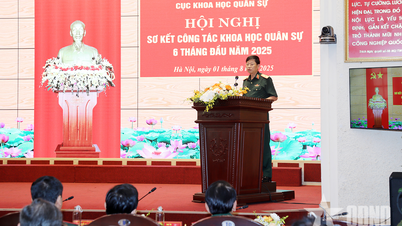






































Comment (0)